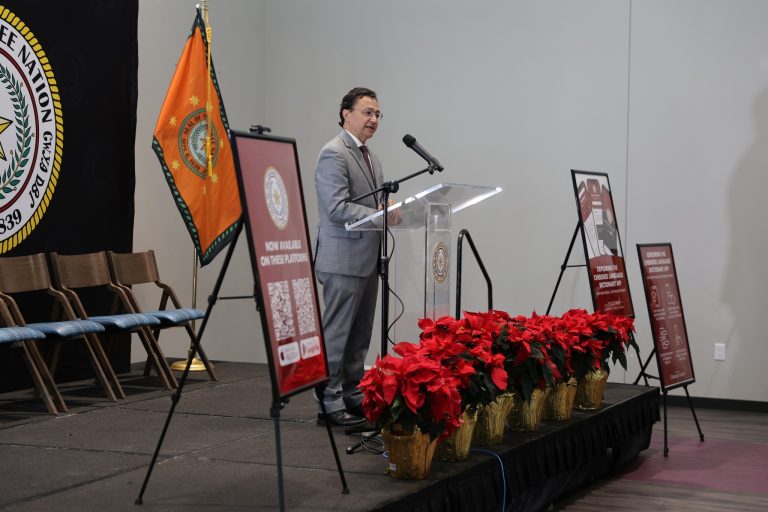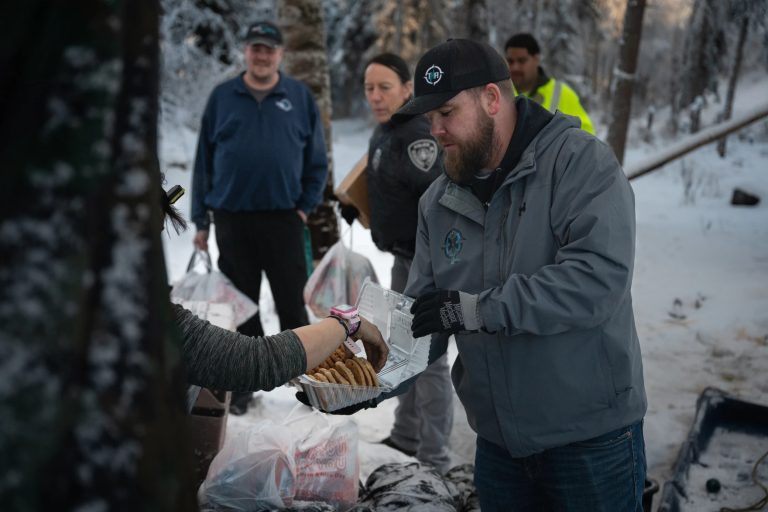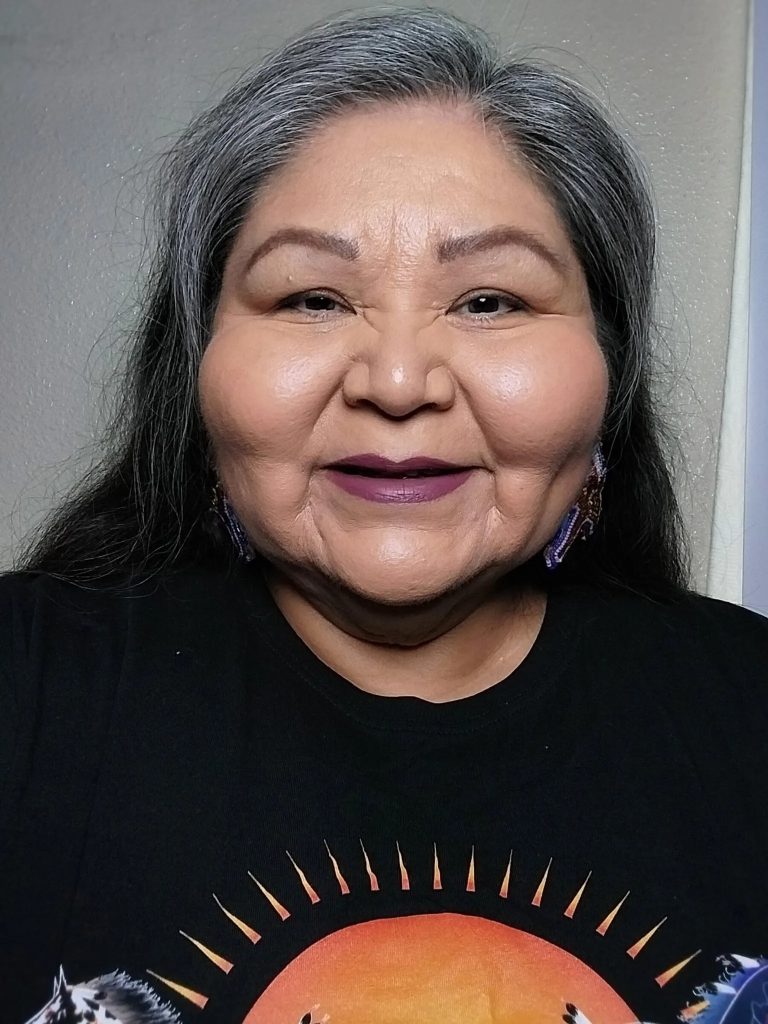Podcast: Play in new window | Download | Embed

Anchor: Antonia Gonzales
Native students, faculty, and staff at the University of Kansas gathered Wednesday to talk about plans for the handling of the remains of ancestors and cultural items.
The university acknowledged this week it has possession of Native American remains and objects.
Melissa Peterson, KU director of tribal relations, is hopeful they will return home.
“I’m pleasantly surprised that we, meaning our community, and me and my office, are getting the support. I don’t think that’s typical in these situations. They came together really quick to talk about a statement and how we can be transparent to campus and that’s kind of a big part of it, right? The transparency and the urgency for Native people to know where these remains are because that connection we have to them, a lot of good and also a lot of bad in some of our cultures.”
KU student Michael Red Bear says it’s a sensitive topic and needs to be handled in collaboration with the Native community.
“The more and more this goes on the more sensitive the information becomes because it’s so heavy and it’s been unintended for so long. So, (we’re) more focused on the mental shock that a lot of people are going to have and kind of figuring out a way where we can alleviate some of that pressure.”
In the past, some repatriation efforts were made by the university, but were never completed.
 The U.S. Senate has confirmed Roselyn Tso as director of the Indian Health Service.
The U.S. Senate has confirmed Roselyn Tso as director of the Indian Health Service.
She was nominated by President Joe Biden in March.
Her nomination passed the Senate Committee on Indian Affairs in July.
Tso is a citizen of the Navajo Nation and served as Director of the Navajo Service Area IHS.
She has nearly four decades of working at and has lived experience using the Indian Health Service.
During her confirmation hearing in May, Tso told lawmakers working with tribes and other partners is key to providing care, especially during the pandemic.
“Throughout my career at the Indian Health Service I have worked to improve the agency to better meet the needs of the people we serve. This was most evident throughout the pandemic where I saw and was part of a true partnership with the Navajo Nation, the San Juan Paiute Tribes, the local, state, federal and private partners to combat COVID-19.”
Tso says she’ll work to strengthen business operations, improve accountability, transparency, and patient safety – and address workforce needs.
IHS delivers health care services to more than two million American Indians and Alaska Natives.

Photo: Jeffrey Zeldman via Flickr CC
The Cherokee Nation is launching a nationwide campaign to get a delegate to the U.S. House before Congress adjourns in December.
Mandated by treaty, the tribe’s first-ever delegate to Congress would be Kim Teehee.
The position was promised in the 1800s.
The Cherokee Nation says efforts to seat the position were delayed by the COVID-19 pandemic.
The Cherokee Nation and its citizens are mobilizing across the U.S. calling on Congress to act.
The effort includes advertising, grassroots movements and public events.
According to the Cherokee Nation, the effort has bi-partisan support and is backed by tribes and tribal organizations across the country.
The Cherokee Nation has more than 400,000 citizens residing in all 50 states including on its reservation in Oklahoma.
Get National Native News delivered to your inbox daily. Sign up for our newsletter today.



